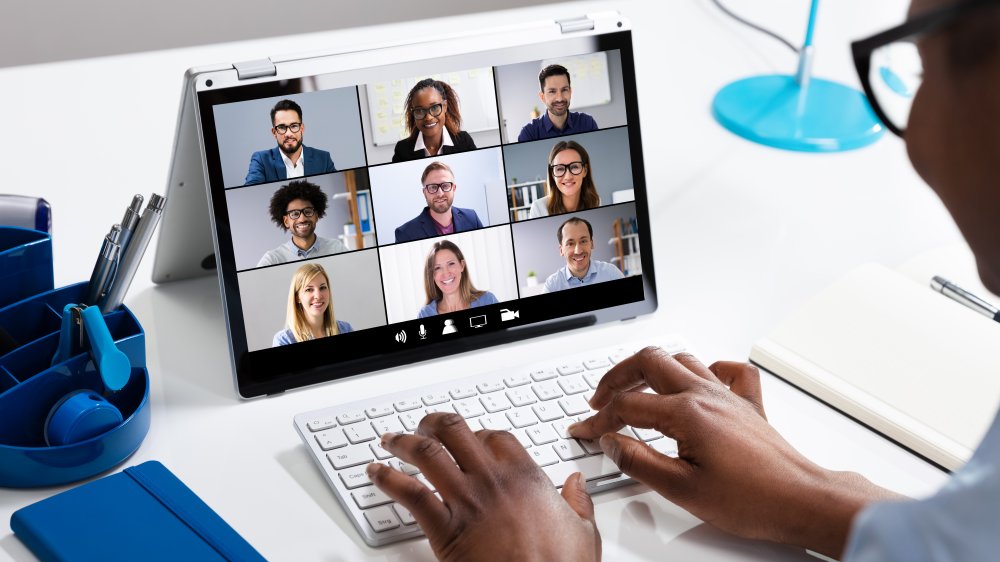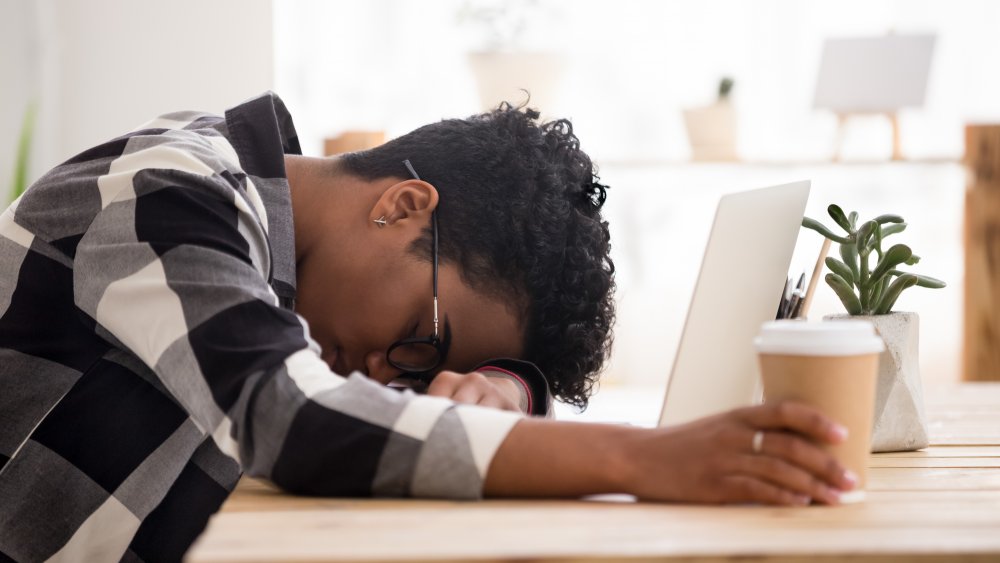The Real Reason You Feel Exhausted After Video Calls
In 1984's Ghostbusters, Dr. Egon Spengler told us that print is dead. That was around the time that people who predict things were predicting that the modern office would soon be paperless. That didn't happen, either. (Neither jet packs nor flying cars, more that matter, if you're keeping track.) But just as Dick Tracy had a way-cool Wrist Radio (and later Wrist TV) for instant chatting in the comics, and Captain Kirk had what amounted to a flip-phone for a communicator, we now have constant, instant, always-within-reach ways of reaching out and touching someone and being touched. Virtually, anyway. And not just Tinder.
How we perform work is shifting and changing these days, and whether it's for the better remains to be seen. Smithsonian tells us that about a third of the workforce has transitioned to working remotely. For a while there, the common wisdom was that nobody made phone calls anymore. But now it's video conferencing, whether Zoom or Skype or, as Wired explains, something else, trying to connect co-workers who more and more frequently are working in isolation, from home or some other site utterly unrelated to an office space. A phone call, with pictures.
Many who have participated in a video conference finishes up, hangs up, and needs a nap. We're quickly learning that video conferencing is exhausting. Intuitively, it makes no sense. You're sitting there in front of some connective device, phone or tablet or what-have-you, and talking with colleagues. Where's the energy drain?
It's not your imagination. Videoconferencing is exhausting
Come to find out, it's a common physical and emotional response. Some call it "Zoom Fatigue." As much as people complain about workplaces, physical offices provide important connections between colleagues — "more stubbornly useful than we imagined," according to NPR. There's physical space involved, personally and professionally. In actual person-to-person interactions, we don't tend to stare at one another the way we might in a video conference — depending on how closely a co-worker might frame their picture for the call. Another drawback is that a video screen removes visual information we're accustomed to taking in and providing during personal contact. To compensate, we often "over-emote," "because you're just a little box on a screen," as Jodi Eichler-Levine, a religious studies professor at Lehigh University, told National Geographic. We concentrate harder, because we're looking for more information; we're facially demonstrative, because we have less physicality with which to communicate. We're examining, and we know we're under examination.
Mental Floss adds that the phenomenon reminds us that life — not just work life — has changed; "a tacit reminder that your life has been disrupted." All of it taxes the brain. All of it is exhausting. Go take that nap. You earned it.

